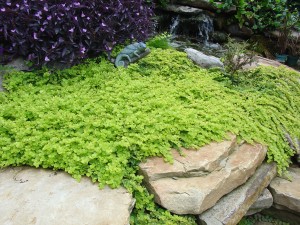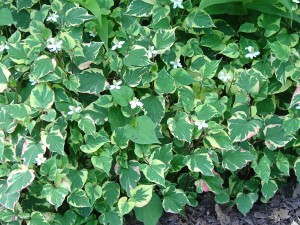Gardening does involve some work, sometimes a lot more if you select the wrong plants. A good purchase may even reduce annual maintenance. Some of them are beautifully tempting at the garden center.
- Non-hardy woody trees and shrubs often sold by box store garden centers. For example, it is not uncommon to find zone 7 hardy trees and shrubs for sale in zone 6 store lots. Store plant buyers may be responsible for ordering for 100 or more stores over a large geographic area.
- Disease or insect prone plants such as Alberta spruce (Picea glauca ‘Conica’), hybrid tea roses, redtips (Photinia spp.), some evergreen euonymus (Euonymus fortunei), and most lilacs (Syringa spp.).
- Overly aggressive perennials are garden thugs. Here is a short list of the worst offenders: bishop’s weed (Aegopodium podograria), sundrops (Oenothera speciosa), yellow archangel (Lamium galeobdolan), gooseneck loosestrife (Lysimachia clethroides), creeping Jenny (Lysimachia nummularia), and chameleon plant (Houttuynia). Some (not all) varieties of English ivy (Hedera helix) are aggressive and potentially invasive in the adult stage.
- Short-lived trees or shrubs, such as Bradford pears (Pyrus x calleryana), flowering peach (Prunus persica), and ornamental plums (Prunus cerasifera).
- Trees and shrubs with aggressive rootsystems. Examples include: staghorn sumacs (Rhus typhina) and (R. glabra), willows (Salix spp.), and many poplar species (Populus spp.).
- High maintenance plants such as sycamores (Platanus spp.), most willows (Salix spp.), and poplars(Populus spp.)
- Invasive plants are absolute no nos. You should review your state watch list for plants you should avoid purchasing. Many states have eradication programs in place to exclude multiflora rose (Rosa multiflora), autumn olive (Eleagnus umbellata), Japanese honeysuckle (Lonicera japonica), oriental bittersweet (Celastrus orbiculatus), Japanese knotweed (Polygonum cuspidatum), and purple loosestrife (Lythrum salicaria). Some states also list east Asian honeysuckles (Lonicera spp.), specific varieties of Japanese barberry (Berberis spp.), Chinese privet (Ligustrum chinensis), maiden grass (Miscanthus spp.), and some species of euonymus (Euonymus spp.).
.



 Posted in
Posted in 
